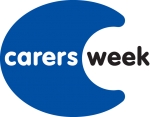Dr. Sonya Doherty has very kindly allowed us to republish this wonderful tips! for parents and caregivers of children on the autism spectrum. Doherty is a licensed and board certified Naturopathic Doctor who is an active member of the CAND. Sonya Doherty completed her undergraduate training at the University of Western Ontario in a Bachelor of Science Honors Kinesiology program. Very experienced in the field of autism you can access her website here.Sonya writes “I feel very lucky to work with so many wonderful families to help children reach their developmental potential. I wanted to write a special note to parents and caregivers about taking care of yourselves! It is my hope that you will all include in your 2011 resolutions to ensure that you are putting some time and effort into your own diet, health and relationships. The healthier parents are feeling, the more energy they have to support their children in all different avenues.
Here are some great tips for parents to consider:
Sleep
Sleep is often highly dependent on children’s routines. Ensure that your child has enough physiological support to maintain healthy sleep patterns. Melatonin, safe sleep supportive botanicals and homeopathics can help children have a deeper, longer, more restful sleep. Many parents have sleep issues of their own. Consider going to bed earlier to take the pressure off of your stress system. Research shows that healthy sleep patterns enhance immunity, energy levels and help individuals cope with stress more effectively.
Dr. Jill James, a PhD biochemist and principal investigator at the Arkansas Children’s Research Institute has identified a number of metabolic and biochemical abnormalities in children with autism. She has also found that parents of children on the autism spectrum often have “methylation defects” which increases their requirement for methyl-B12. Many of you have seen the incredible benefit of MB12 on children with developmental disorders. Parents who do not have a strong enough methylation cycle will have trouble making enough serotonin, putting their mood and sleep at risk for developing issues. Melatonin is the hormone that helps us naturally fall asleep. Melatonin is made from serotonin and vitamin D. A methylation issue could present in a parent with chronic sleep issues and supporting methylation can dramatically improve sleep quality and length (as long as kids cooperate!) as well as having a number of other positive health benefits including prevention of chronic disease.
Digestion
The digestive tract plays a number of essential roles. Energy, mood, regulation of inflammation and immune support are all mediated by a healthy digestive tract. Adults should be having (you know I love to talk about digestion!) 2-3 bowel movements daily that are easy to pass and shaped like an “S” or have a curve. If your digestion is not optimal, it is more difficult to produce energy and regulate inflammation which plays a role in weight regulation and disease prevention. Remember that 90% of serotonin is produced in the digestive tract
Essentials for the digestive tract:
Fiber
Water
Essential Fatty Acids
Probiotics
Consider the foods that disrupt your child’s digestive tract, behaviour, sleep and/or development. Part of our reactions to foods is genetically predetermined and many parents benefit from removing dairy and/or gluten from their diet. Other people have noticed significant health benefits from removing allergens identified through food allergy testing.
Energy and Mood
Who couldn’t use more energy? Most parents and caregivers are focusing so much on their children and day to day tasks, it is difficult to create opportunities to improve energy and/or mood. I believe that every parent should be on a stress system support protocol. Our adrenal glands process all of the stress in our body. Some signs your stress system is under pressure are fatigue, feeling overwhelmed and/or irritable, difficulty with mood regulation, afternoon drop in energy and/or sleep issues. Other people experience difficulty with focus and memory.
For more information, visit www.adrenalfatigue.org
- B complex
- Protein with every meal
- Minimizing processed foods and sugar
- B12 therapy


